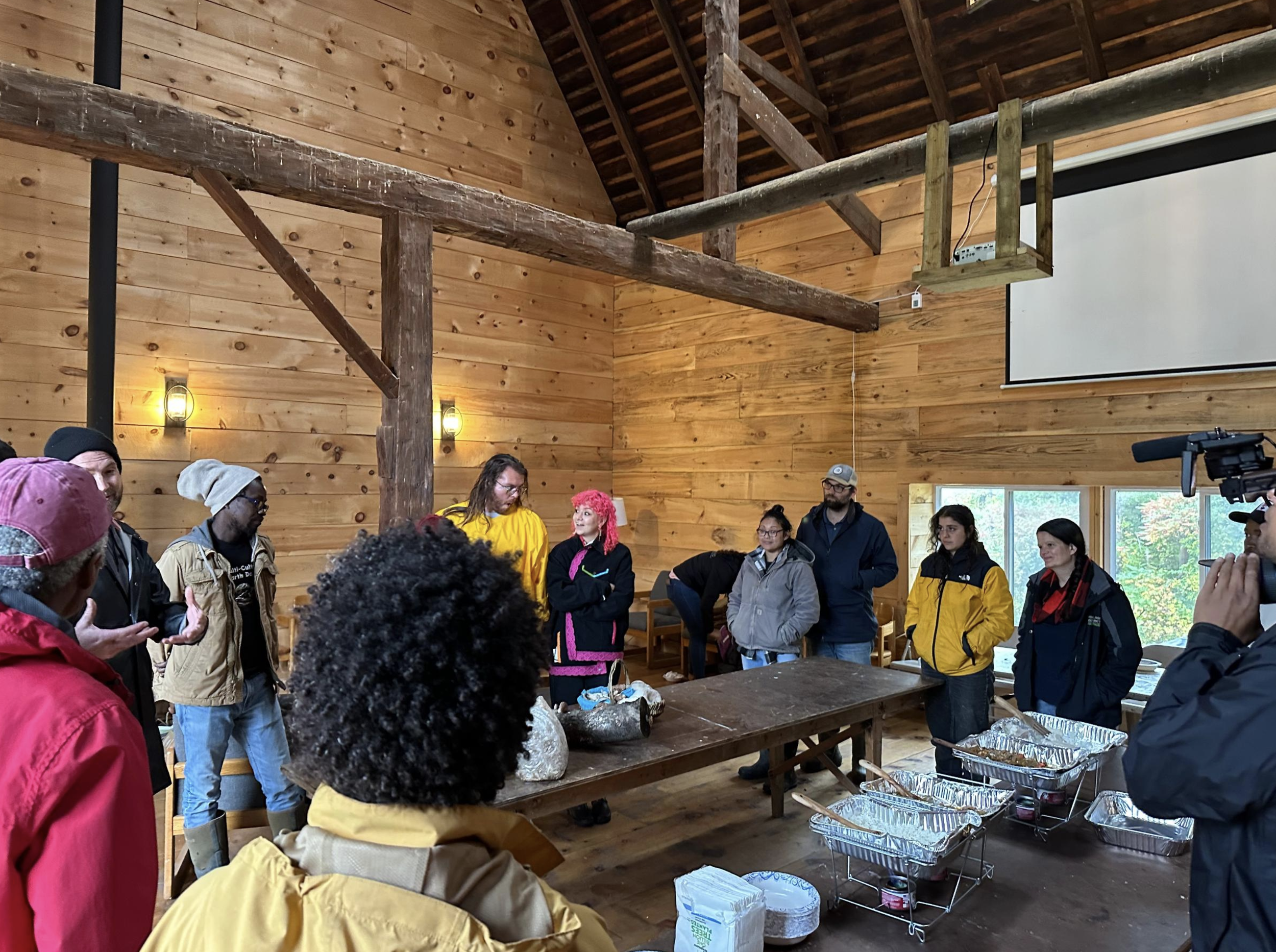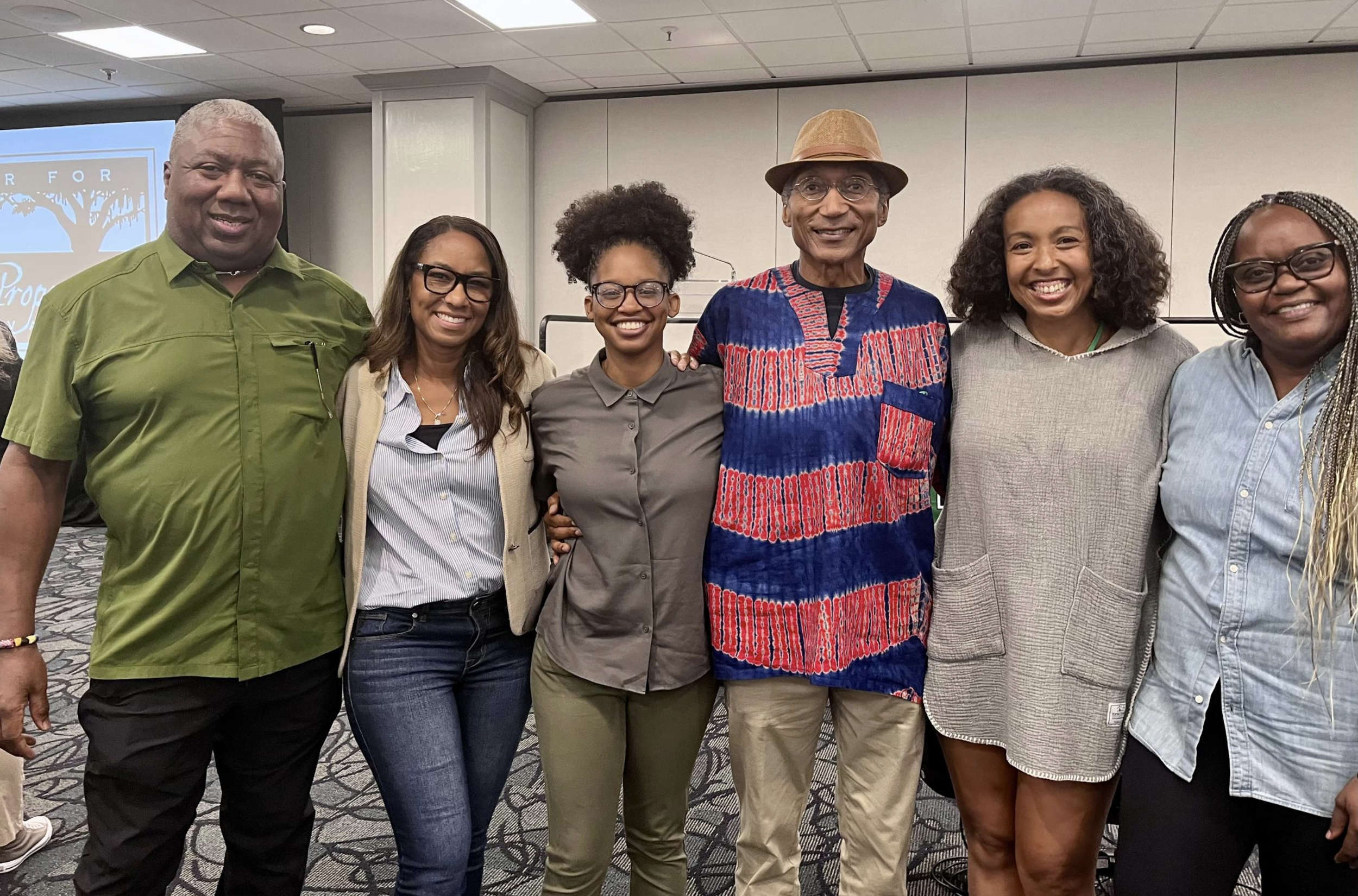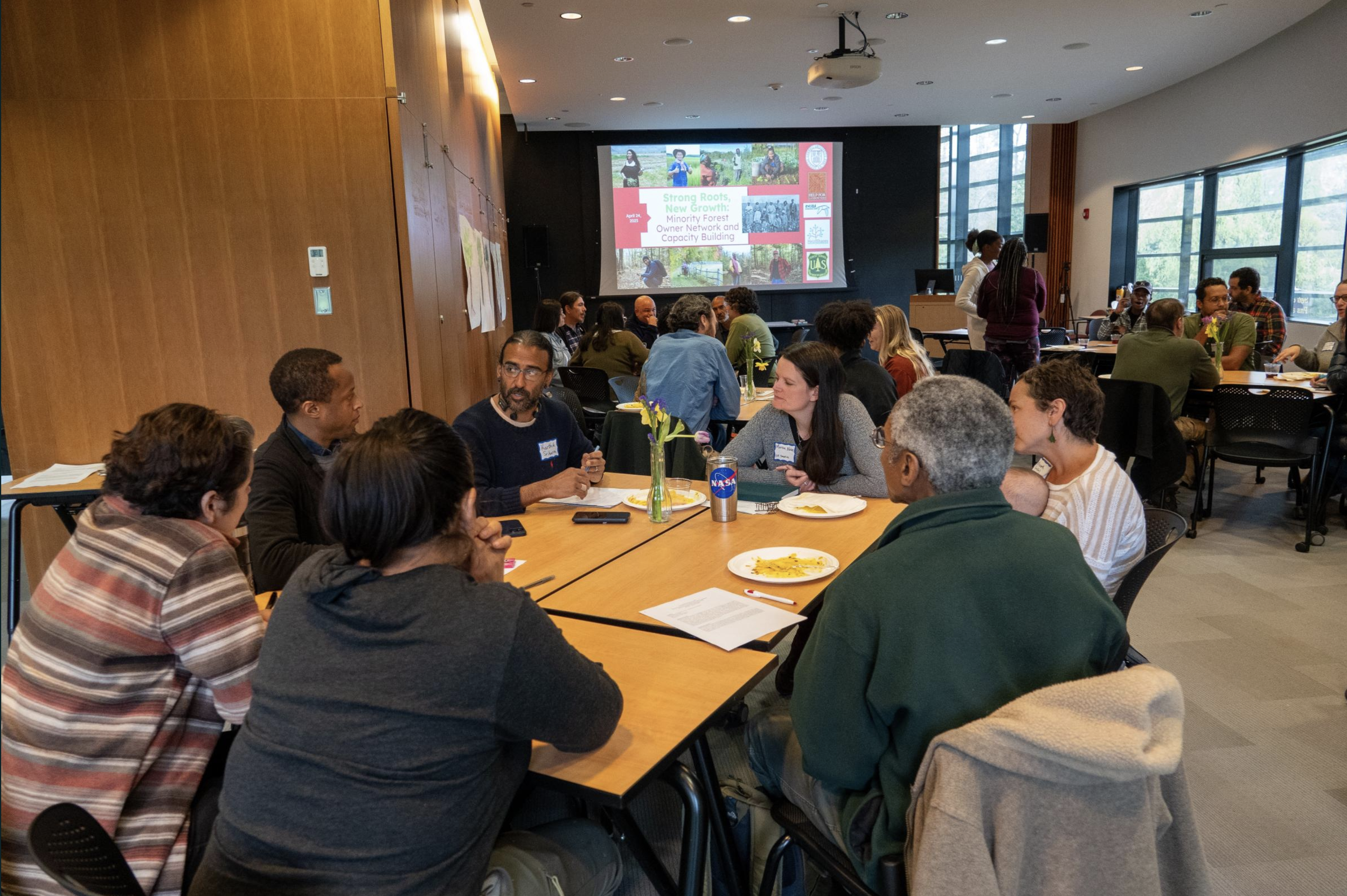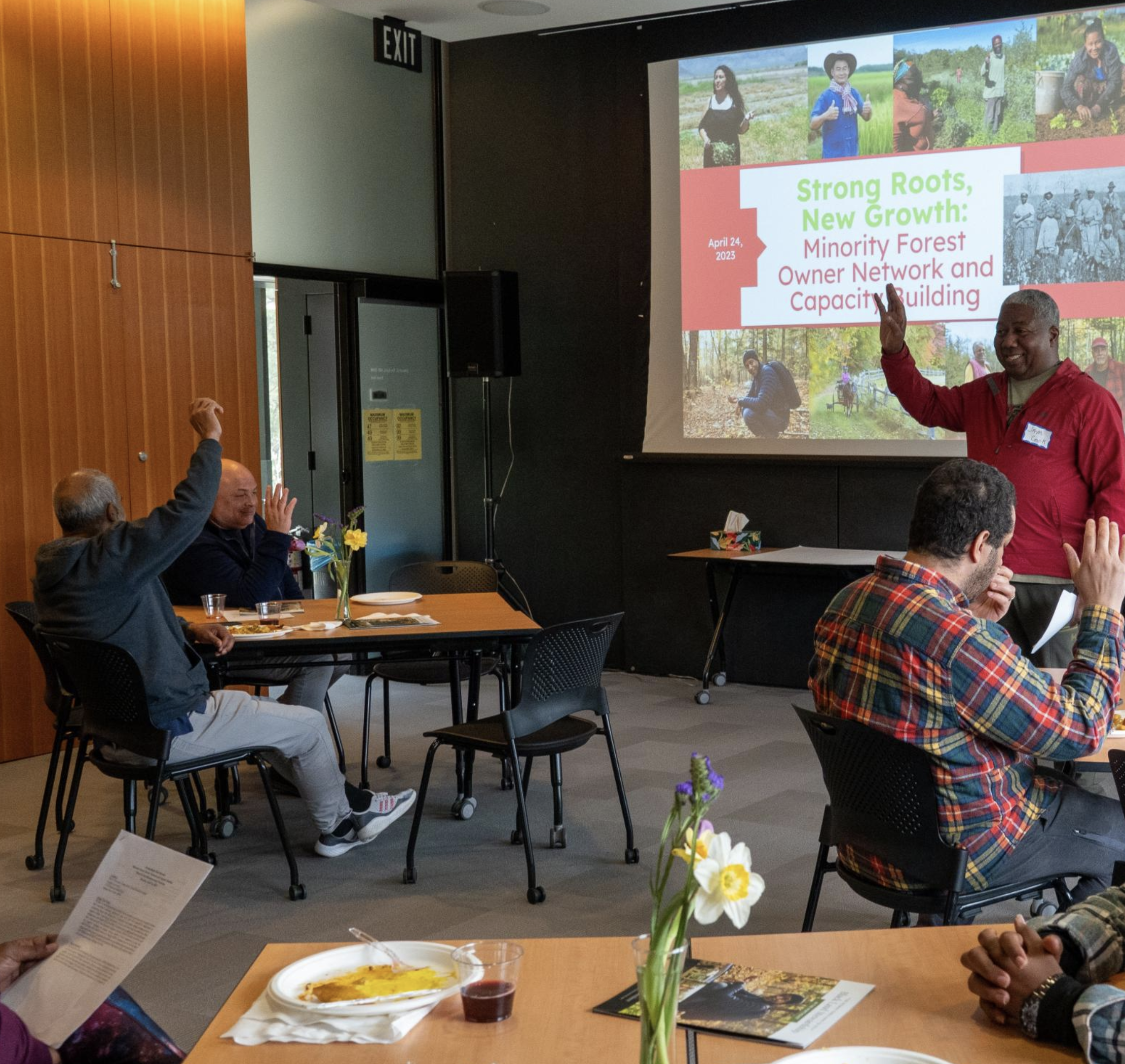Strong Roots,
New Growth
The Strong Roots, New Growth project is a guiding light of hope for Indigenous, Black, Immigrant, and Ally forestland owners embarking on their journey in land management.
Hello!
Announcement:
The annual Agroforestry Symposia continue to be a resounding success!
The warm air is full of birdsong and buds are bursting out of their winter slumber. We're fully in the glory of Spring, taking cues from nature to open ourselves to new experiences and connections. We just finished up our long-awaited Strong Roots, New Growth symposium for Indigenous, Black, Immigrant, and Ally forest stewards, and we're busy preparing for Spring and Fall symposia and monthly forestry events as we ramp up the daily work of caring for the land and all her changes.
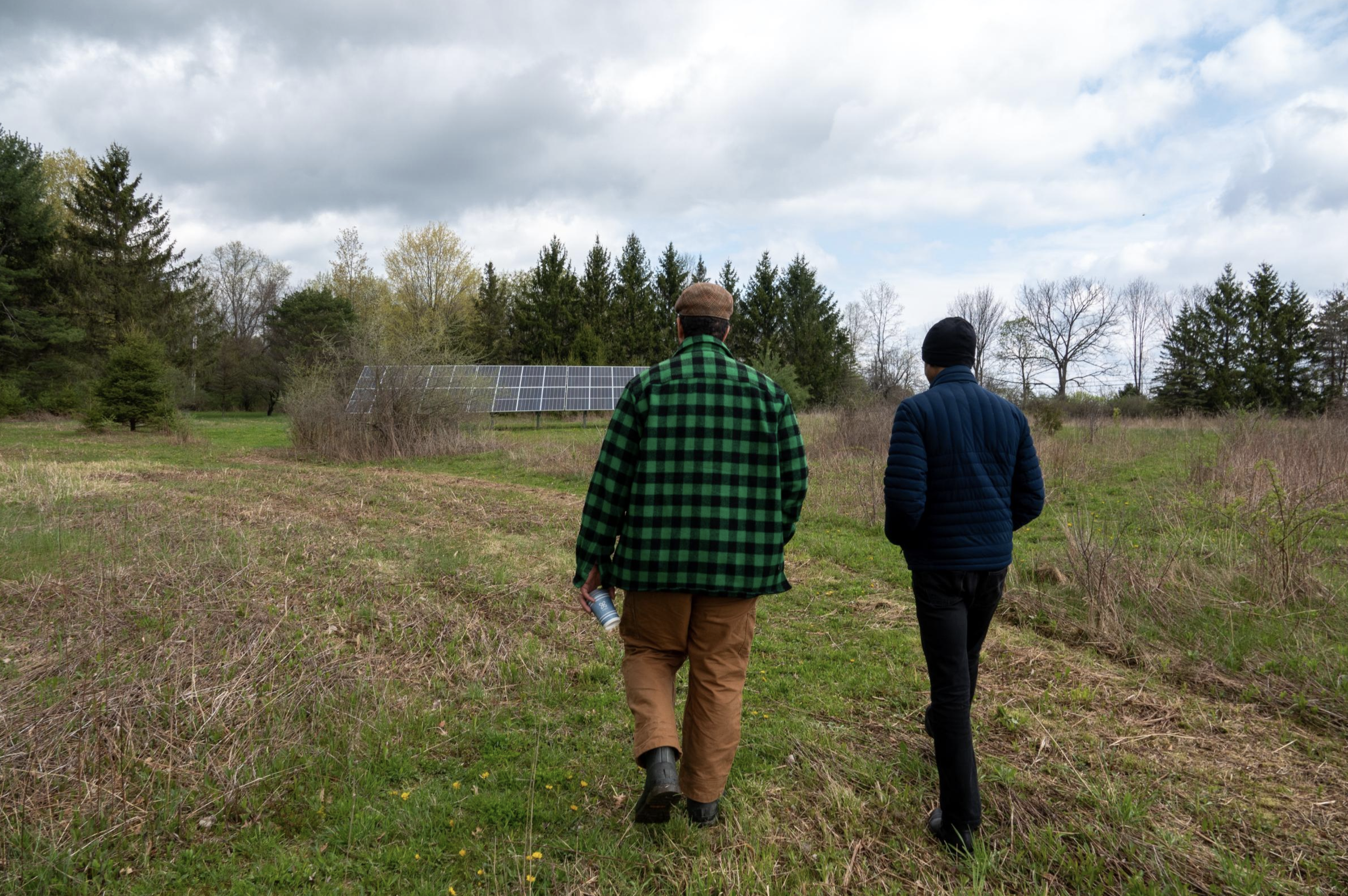
Empowering BIPOC Forestland Owners
This groundbreaking initiative is tailored to provide specialized support and resources to minority landowners, equipping them with the knowledge and tools necessary to nurture their lands effectively.
More than just technical assistance, this project seeks to foster a sense of community and belonging among forest owners, creating an inclusive and supportive environment for all involved. By facilitating connections and tailored support, the Strong Roots, New Growth initiative is dedicated to empowering marginalized forestland owners and ensuring the health and productivity of their lands.
Funded by the U.S. Forest Service, this initiative signifies a significant step towards a brighter and more equitable future for BIPOC forestland owners. It stands as a testament to our commitment to creating a sustainable, inclusive system that celebrates the diversity and richness of our forests.
Minority Forest Owner Network and Capacity-Building
-
The Strong Roots, New Growth project gives special attention to marginalized forestland owners who are in the early stages of managing their land in a way that embodies multi-resource stewardship principles. The project provides minority landowners with the networking and technical assistance they need to become well-resourced and, therefore, enabled to keep their land in a productive and healthy condition. Our coverage of these topics aims to build a more equitable and sustainable system of care for all forest owners in our region. This project is funded by the U.S. Forest Service.
We came together as a project team to build a network to increase the capacity of landowners in the northeast to achieve their goals. Our aim for the kick-off workshop in April 2023 was primarily to listen to the ideas and thoughts of under-resourced forest owners and forest stewards regarding goals for the land under their care. For natural resource professionals, this was an opportunity for them to connect with minority forest owners and forest stewards and discuss how programs (both governmental and nongovernmental) can further conservation while supporting landowner interests and goals for their land.
As a part of the workshop's activities, we had the opportunity to visit the forestland owned by Jeff and Djangou Wilburn. During this visit, we engaged in thoughtful discussions with them about their conservation goals and unique perspectives as new woodland owners in the region.
Ongoing monthly workshops focus on supporting the forestland stewardship and forest product emerging market engagement of landowners across the Northeast.
-
A few years ago, the Strong Roots, New Growth team had the privilege of participating in the Center for Heirs Property Preservation Landowner Symposium in South Carolina. This event provided us with a valuable opportunity to glean insights from one of the thriving sites of the Sustainable Forestry and African-American Land Retention program. As an integral part of Strong Roots, New Growth's strategy of fostering partnerships and building capacity, we were pleased to have land stewards from Tompkins County join us at the symposium for an enriching experience of knowledge sharing. This gathering also served as a valuable opportunity to establish connections with landowners in the South, allowing us to explore and exchange insights on effective strategies for retaining land, ensuring access, and promoting responsible stewardship.
Our continued partnership with organizations such as CHPP helps Khuba lead from the heart of engaged forestland stewardship in the North.
-
Based on the feedback we received from our first set of workshops a few years ago, we discovered that landowners and stewards expressed interest in both mushroom cultivation and agroforestry. In response, Strong Roots, New Growth organized a workshop in October 2023. During this event, participants connected with the world of fungi, delving into the intricate nuances of mycelium growth in various substrates. They also savored delicious Ghanaian cuisine while forming new friendships. Attendees also had the opportunity to create and take home their very own shiitake logs! We would like to extend our heartfelt thanks to the dedicated presenters and workshop leaders who made this event possible: Chris Knight, Yao Foli (Chacha), Sam Iradukunda, Steve Gabriel, and Christa Nunez.
Ongoing workshops cover topics such as blueberry growing, agroforestry, forest medicinal herb growing, forest tourism, silvopasture and forest raised meat and fiber, alley cropping, wind breaks and buffer zones, ginseng growing, selective logging, and diverse forest preservation.
Project Team
Christa Núñez
Christa Núñez is an African American entrepreneur, researcher, agriculture educator, social justice practitioner and storyteller. She focuses her work on creating cooperative land governance models and equitable food systems with African diaspora communities. She is the founder and Director of CAN Cooperative Media, the Learning Farm, and its non-profit sister organization Khuba International. Christa possesses 27 years of filmmaking and storytelling experience, as well as 12 years of experience in nature, farm and garden-based, equity-focused education. For the past 5 years, she has operated the STEAM In Nature Summer Camp and After School Program at the Learning Farm. Through Khuba International, Christa has implemented community and school garden programs in rural California for food insecure communities, and supported garden and forest-based education for a school in Port-au-Prince, Haiti. She currently spearheads a literacy initiative called Ubuntu Library that centers narratives of people of color and directs Quarter Acre for the People, a food justice-focused program for youth and family farming education and land governance. She leads the implementation of the Equitable and Edible Farm School curriculum at the Ithaca City School district. Through her for and non-profit organizations, as well as with community organizations such as Black Farmers United, Christa prioritizes collaborations with stakeholders across multicultural, multigenerational and interdisciplinary lines, cooperating primarily on projects with children and families.
Shorna Allred
Shorna Allred is the Susan R. Wolf Distinguished Professor in the Dept. of Geography and Environment at the University of North Carolina at Chapel Hill and Adjunct Professor at Cornell University in the Department of Natural Resources and the Environment and the Dept. of Global Development at Cornell University. A conservation social scientist, Dr. Allred teaches and conducts research in the areas of global sustainability, conservation and land use decision-making, community resilience, and environmental justice with a particular interest in social dimensions of climate change mitigation and adaptation. Her main interests center on how conservation social science can facilitate community-based approaches to planning and management while enhancing the resilience and sustainability of communities. Allred is also one of the leaders of the Stories of Black Land Stewardship project, which chronicled the stewardship experiences of Black landowners in the northeastern US and offered policy and outreach recommendations for natural resource professionals. She has also partnered with indigenous communities on conservation projects and conducted applied conservation social science research on private forestry owner outreach methods, such as peer-to-peer learning.
Sam Cook is the executive director of forest assets for North Carolina State University’s College of Natural Resources and is the vice president of the Natural Resources Foundation. Cook is a forester, educator, mentor, and advocate for all landowners with an emphasis on historically under-served forest landowners. As executive director of forestry assets, he oversees 10 forest properties that support research and generates more than $3 million annually for the college. Cook also served on the College of Natural Resources Foundation Board of Directors. Cook is a co-founder of Growing Environmental and Conservation Leaders of Color and the Conservation of Color National Organization. He is also a member of the NC Forestry Association and a board member for the Forest History Society, Society of American Foresters and World Forestry Center. Cook worked as a forester for the Center for Heirs’ Property Preservation managing the Sustainable Forestry and African American Land Retention Program, which was launched by the U.S. Endowment for Forestry and Communities in 2012/2013 with the support of African American-led community-based organizations, to provide resources to help minority forest owners to retain their land and become advocates for working forests.
Sam Cook
Mavis Gragg
Mavis is a self described “death and dirt” attorney and conservation professional empowering families to use real estate as a source for intergenerational resiliency and wealth. She is currently a Loeb Fellow at the Harvard Graduate School of Design. Mavis also is the co-founder and CEO of HeirShares, which is building groundbreaking technology to facilitate affordable solutions for family real estate ownership. HeirShares’ first tool is their learning platform Death & Dirt. Mavis led the eight state Sustainable Forestry and African American Land Retention Program as Director and chaired the boards of the North Carolina Parks and Recreation Trust Fund Authority and Triangle Land Conservancy. Mavis, also an art enthusiast, is the co-founder of Pop Box Gallery, a zero-commission art gallery. She also serves on the Nasher Friends’ Board and the North Carolina Museum of Art Foundation Board.
Kathyn Walsh
Kathryn (Katie) Walsh is a Research Associate and Lab Supervisor for the Center for Conservation Social Sciences in the Department of Natural Resources and the Environment at Cornell University. An environmental social scientist broadly trained as a human-environment geographer, Katie conducts social science research focused on different natural resource management topics, like private forest management and stewardship. Katie’s community-based research empowers stakeholder decision-making through targeted outreach and engagement. Along with forestry-related research projects, Katie studies the human dimensions of renewable energy development in New York State and invasive species control programs in the Great Lakes. Prior to joining Cornell University, Katie was a Postdoctoral Research Social Scientist with the U.S. Department of Agriculture’s Northern Plains Climate Hub.
Shanasia Sylman
Shanasia Sylman is a City and Regional Planning PhD student interested in the intersections of social justice, land conservation and biodiversity efforts. For the last three and a half years, Shanasia has been working as an outdoor recreation planner for the National Park Service and has become well acquainted with how open spaces are managed across the U.S. While assisting with community-led outdoor recreation and conservation projects, it became apparent how the process of creating and managing parks and open spaces does not account for systemic barriers to land access for marginalized communities. Through her proposed research, Shanasia hopes to take a critical look at land stewardship programs and explore how collective land ownership models, like land trusts, could create more equitable opportunities for marginalized communities to engage in more self-determined land stewardship. Shanasia is deeply interested in community conservation and how examples of this across the globe can influence an evolution in the U.S. land conservation movement that better supports and empowers a diversity of land stewards. She holds a masters in urban planning from the Harvard Graduate School of Design (GSD) and a bachelors in engineering from the Massachusetts Institute of Technology (MIT).
As we embark on this collective journey, we are filled with excitement about the potential for positive change and the remarkable resilience of our communities. The Strong Roots, New Growth project is not just about land management; it's about sowing the seeds of hope, empowerment, and unity, ushering in a new era of opportunity for all forest owners in our region.
With this initiative, we are nurturing strong roots, cultivating new growth, and building a future where every forest owner has the opportunity to thrive.
Let’s work together!
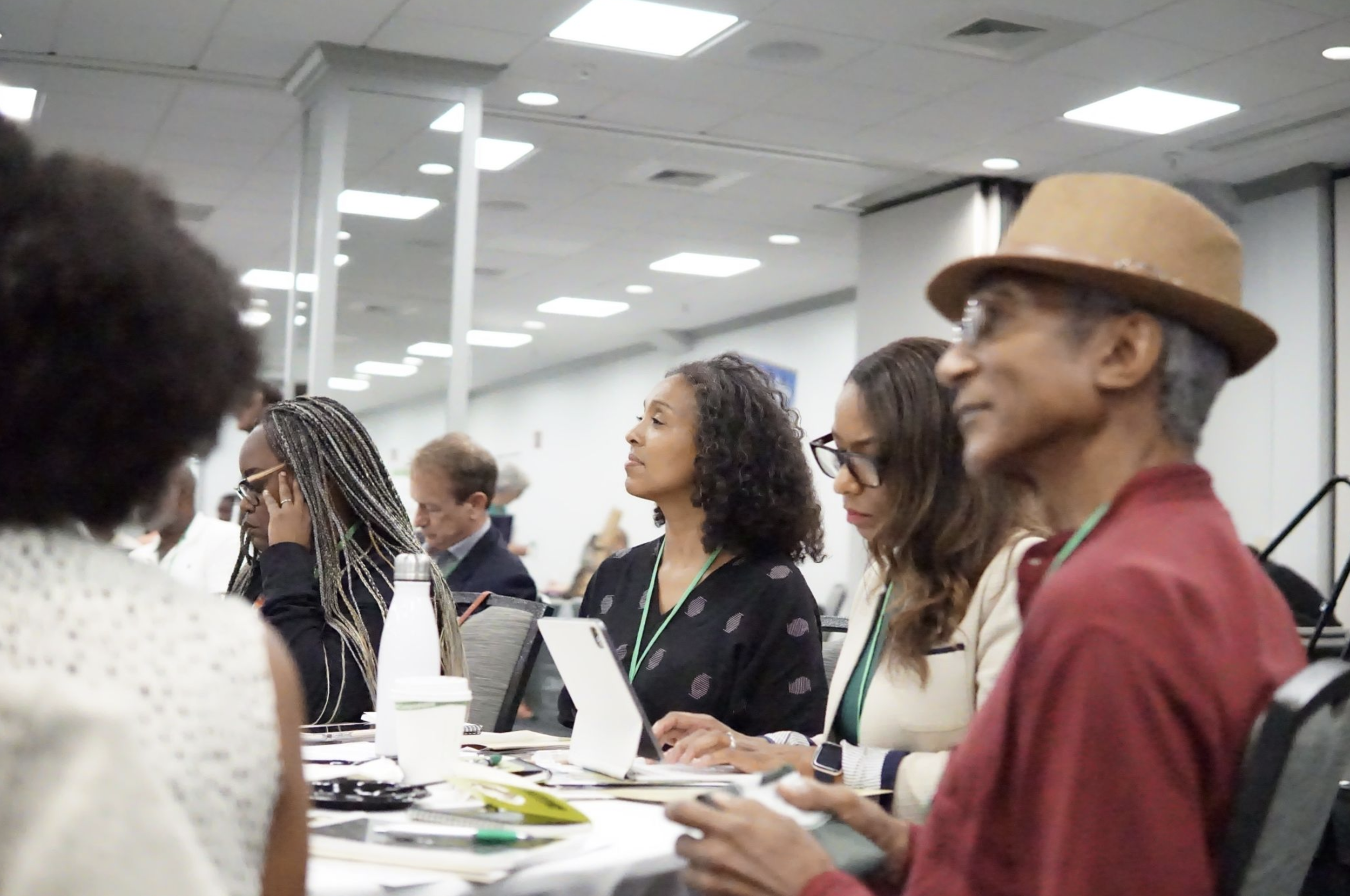
Upcoming
Look for our Spring and Fall Landowner Symposium!
To be held in the Finger Lakes region of Upstate New York









